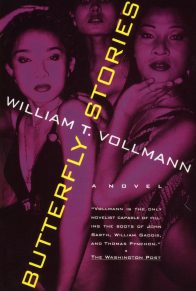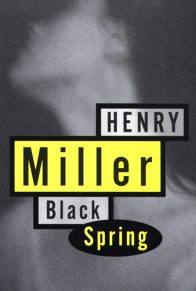A man about thirty-five, rather swarthy it is true, but of clear complexion, thanks apparently to the daily use of soap, which purges all impurities. His hair, not having been cut for some hundred days, is long and flowing, and looks as if it is in the process of being let out altogether, in the foreign style. Naturally enough, he uses that scent called Eau de Cologne to give a sheen to his hair. He wears a padded silken kimono beneath which a calico undergarment is visible. By his side is his Western-style umbrella, covered in gingham. From time to time he removes from his sleeve with a painfully contrived gesture a cheap watch, and consults the time. As a matter of fact this is merely so much display to impress others, and the chain is only gold-plate. He turns to his neighbor, who is also eating beef, and speaks:
Excuse me, but beef is certainly a most delicious thing, isn’t it? Once you get accustomed to its taste, you can never go back to deer or wild boar again. I wonder why we in Japan haven’t eaten such a clean thing before? For over 1620—or is it 1630—years people in the West have been eating huge quantities of beef. Before then, I understand, beef and mutton were considered the king’s exclusive property, and none ever entered the mouth of a commoner, unless he happened to be something on the order of a daimyo’s chief retainer. We really should be grateful that even people like ourselves can now eat beef, thanks to the fact that Japan is steadily becoming a truly civilized country. Of course, there are some unenlightened boors who cling to their barbaric superstitions and say that eating meat defiles you so much that you can’t pray any more before Buddha and the gods. Such nonsense shows they simply don’t understand natural philosophy. Savages like that should be made to read Fukuzawa’s article on eating beef. In the West they’re free of superstitions. There it’s the custom to do everything scientifically, and that’s why they’ve invented amazing things like the steamship and the steam engine. Did you know that they engrave the plates for printing newspapers with telegraphic needles? And that they bring down wind from the sky with balloons? Aren’t they wonderful inventions! Of course, there are good reasons behind these inventions. If you look at a map of the world you’ll see some countries marked “tropical,” which means that’s where the sun shines closest. The people in those countries are all burnt black by the sun. The king of that part of the world tried all kinds of schemes before he hit on what is called a balloon. That’s a big round bag they fill with air high up in the sky. They bring the bag down and open it, causing the cooling air inside the bag to spread out all over the country. That’s a great invention. On the other hand, in Russia, which is a cold country where the snow falls even in summer and the ice is so thick that people can’t move, they invented the steam engine. You’ve got to admire them for it. I understand that they modeled the steam engine after the flaming chariot of hell, but anyway, what they do is to load a crowd of people on a wagon and light a fire in a pipe underneath. They keep feeding the fire inside the pipe with coal, so that the people riding on top can travel a great distance completely oblivious to the cold. Those people in the West can think up inventions like that, one after the other. … You say you must be going? Well, good-bye. Waitress! Another small bottle of sake. And some pickled onions to go with it!
Translated by Donald Keene












